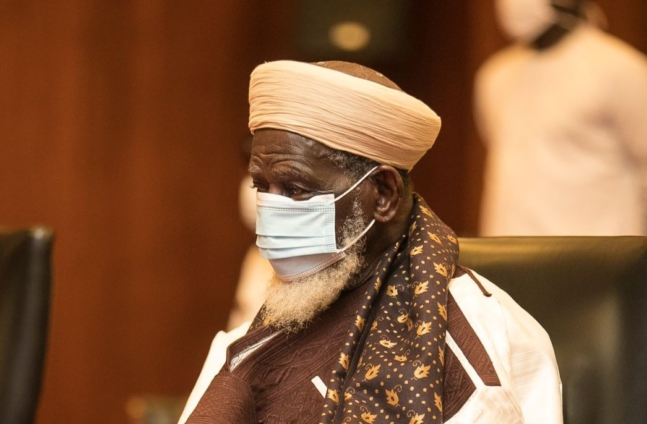The Office of the National Chief Imam, will be meeting Muslim groups and stakeholders to discuss how to implement the record-keeping protocol for congregants who visit mosques to enable follow-ups in a possible case of Covid-19.
Alhaji Khuzaima Osman, the Personal Assistant to the National Chief Imam said the meeting would be held on Wednesday, June 3.
He said the meeting had become necessary as it had not been the norm for mosques to keep records of people who prayed there as it does not have regular members.
"So the meeting is not just to ensure the outlined guidelines are followed based on the required standard but also know who goes in and out of the mosques," he said.
Alhaji Osman said the protocol of record-keeping is the challenge they seek to address during the meeting thus, urged Muslim leaders that while awaiting the final decision of the Chief Imam mosques should ensure they implement the other safety measures.
He also advised Muslims to adhere to the protocol of performing ablution at home before going to the mosque.
"If for any reason one will have to perform ablution upon arriving at the mosque then they should use sachet water and not the ablution kettles to contain the spread of the disease," he said.
The new protocol of record-keeping came to bear when the President Nana Addo Dankwa Akufo-Addo on Sunday in a televised broadcast eased restrictions on religious services in the country.
The restrictions billed to commence with 25 percent attendance, and with a maximum of 100 congregants worshipping at a time in church or the mosque would begin on June 5, 2020.
Religious gatherings according to the President, are not permitted to go beyond one hour, and congregants are required to maintain a mandatory one-metre rule of social distancing, wearing a mask at all material times and keeping a register of names and contact details of all worshippers.
Also, religious institutions that are desirous of opening their premises to their members, such as churches, mosques, and others, must provide handwashing facilities, disinfect, fumigate and put in place the requisite logistics needed to guarantee safe opening and operation.
Meanwhile, the Religious Affairs Ministry on Monday outlined detailed guidelines for churches and mosques for their safe reopening.
Latest Stories
-
DAMC, Free Food Company, to distribute 10,000 packs of food to street kids
3 minutes -
Kwame Boafo Akuffo: Court ruling on re-collation flawed
23 minutes -
Samuel Yaw Adusei: The strategist behind NDC’s electoral security in Ashanti region
25 minutes -
I’m confident posterity will judge my performance well – Akufo-Addo
36 minutes -
Syria’s minorities seek security as country charts new future
1 hour -
Prof. Nana Aba Appiah Amfo re-appointed as Vice-Chancellor of the University of Ghana
1 hour -
German police probe market attack security and warnings
1 hour -
Grief and anger in Magdeburg after Christmas market attack
1 hour -
Baltasar Coin becomes first Ghanaian meme coin to hit DEX Screener at $100K market cap
2 hours -
EC blames re-collation of disputed results on widespread lawlessness by party supporters
2 hours -
Top 20 Ghanaian songs released in 2024
3 hours -
Beating Messi’s Inter Miami to MLS Cup feels amazing – Joseph Paintsil
3 hours -
NDC administration will reverse all ‘last-minute’ gov’t employee promotions – Asiedu Nketiah
3 hours -
Kudus sights ‘authority and kingship’ for elephant stool celebration
3 hours -
We’ll embrace cutting-edge technologies to address emerging healthcare needs – Prof. Antwi-Kusi
4 hours

